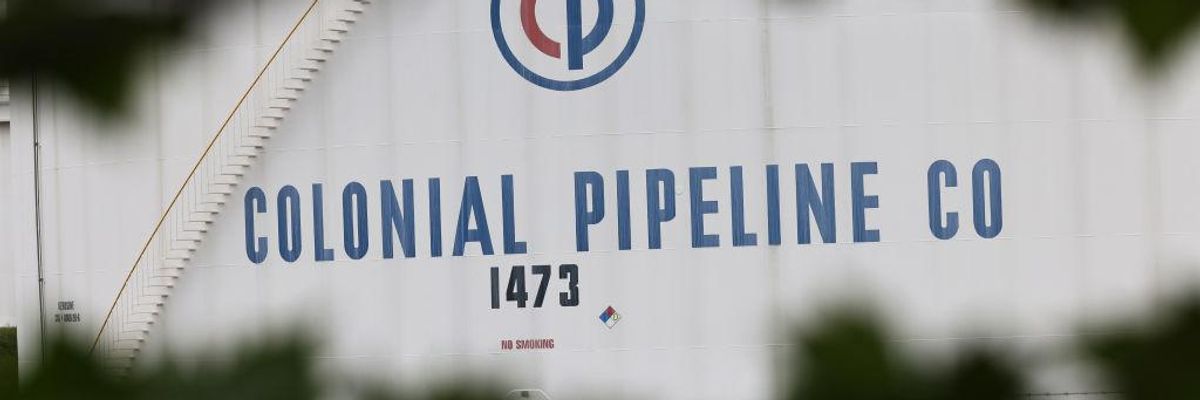After the largest gasoline pipeline in the U.S. was shut down over the weekend due to a crippling cyberattack, environmentalists said Mondaythe situation is just further reason why the dirty and dangerous fossil fuel industry should be left behind in favor of a transition to clean energy.
"The ongoing shutdown of the Colonial pipeline is just the latest in a long litany of examples of why we must urgently transition off of highly vulnerable and dangerous fossil fuel networks," saidWenonah Hauter, executive director of Food & Water Watch, in a statement."Given the centralized nature of major fossil fuel pipelines, a disruption anywhere along the line can adversely impact tens of millions of people, as we are seeing now."
The 5,500 mile-long Colonial Pipeline transports gasoline, diesel, and jet fuel from Texas to New York--delivering almost half of the U.S. East Coast's fuel supply for approximately 50 million Americans.
Hauter warned that a prolonged shutdown of a pipeline poses a threat to consumer financial security if gasoline prices spike as a result and noted the danger to public safety if unstable pipelines were to release explosive contents.
Environmental activist Bill McKibben also weighed in on the cyberattack on Twitter:
The cyberattack referred to as the most significant, successful attack on energy infrastructure in the nation's history was reportedly orchestrated by the criminal ransomware gang DarkSide.
While the Department of Transportation's Federal Motor Carrier Safety Administration issued an emergency declaration in 17 states on Sunday and federal efforts remain underway to restore operation of the pipeline, Food & Water Watch further underscored the necessity of transitioning to renewable energy.
"Wind and solar power networks are by their very nature more distributed, more sensibly scaled, and more resilient than fossil fuel systems," said Hauter. "Of course, unlike fossil fuels, clean wind and solar power pose no threat to our climate. This latest pipeline disruption makes it ever more clear: We must break free from dangerous fossil fuel dependence, now."

